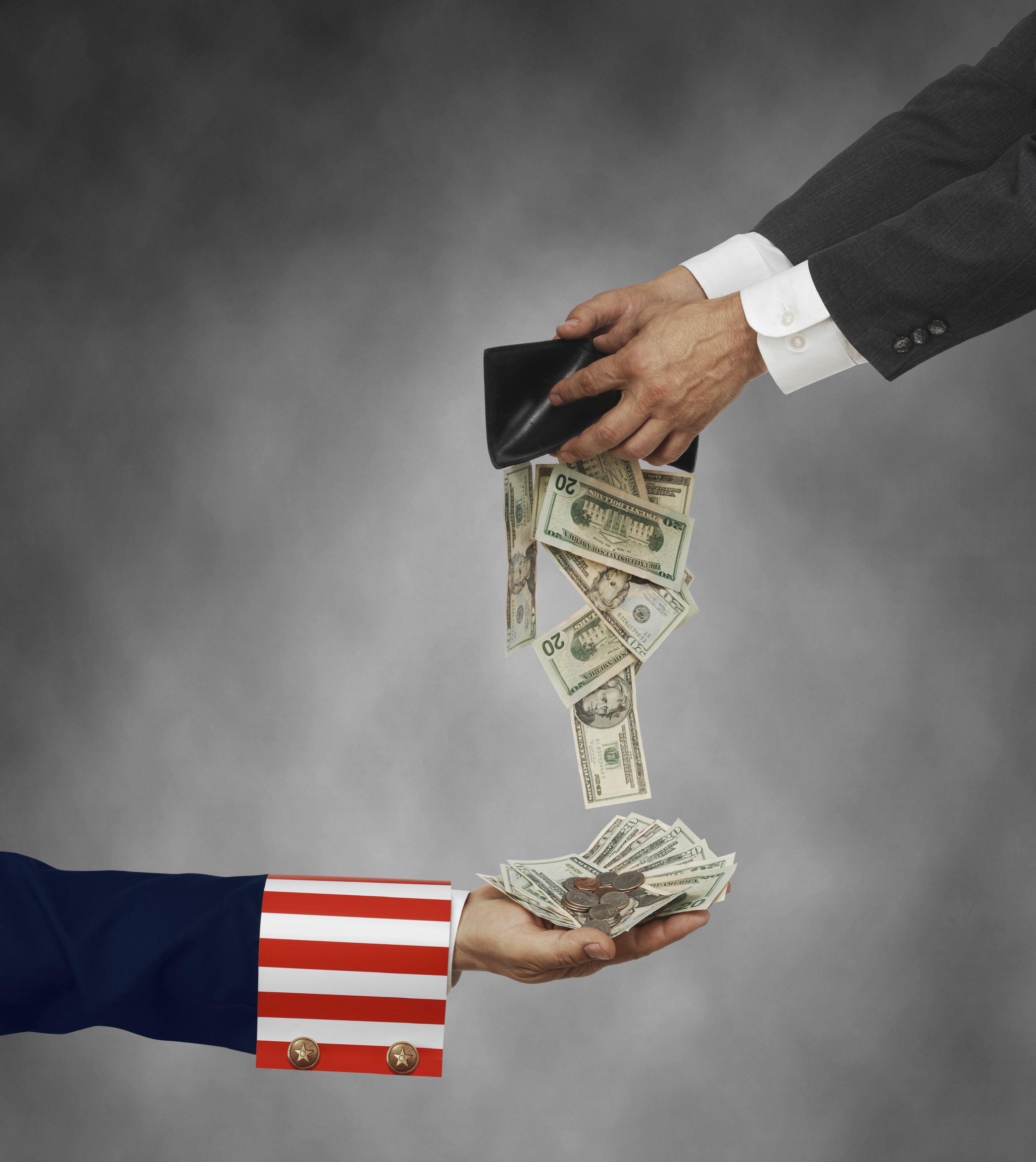Taxpayer-financing of political campaigns is an increasingly salient issue at the state and local level. Advocates of greater campaign finance regulation argue such policies will reduce the influence of large donors in campaigns and, consequently, improve the political system in other areas too. In reality, many years of experience demonstrate that tax-financing of campaigns is an unfair and wasteful scheme that gives government too large a role in our political system at the expense of voluntary participation by individuals and organizations. Most notably, these programs trample on citizens’ free speech rights by forcing taxpayers living in jurisdictions with such systems to subsidize the political campaigns of those with whom they may disagree.
Taxpayer-financing programs are often surreptitiously labeled “public financing” or “clean elections” in the media and among supporters. The Institute for Free Speech explicitly refers to such programs as “tax financing” because this phrase highlights an important truth: government subsidies for political campaigns are always ultimately funded by taxpayers. Tax financing can come in many forms: from monetary vouchers given to voters, to direct government funding of those campaigns that raise a certain number of voluntary contributions – whether it’s a lump sum grant or a ratio, such as in New York City, where campaigns get $6 from the government for every $1 collected from private donors.
The funding source can vary too. Sometimes the money comes from increases in property or other taxes. In other programs, the funding is raised in a more indirect fashion – like fees from certain government operations – to avoid the accusation that taxpayer money is being spent. Of course, transferring money from one government program to another means that the original program’s lost funding must be replaced somehow. Ultimately, taxpayers are still on the hook if the government commits itself to giving money to campaigns – or rather, acting as the middleman in the transfer of money from taxpayers to politicians.
Tax-financing programs impinge on free political speech and association rights in numerous ways. First, it is crucial to remember that contributing money to political candidates is a protected form of free speech. The Supreme Court has said for decades that giving money to candidates is an important way of expressing political support both symbolically and substantively. After all, money is essential to speaking about politics: from publishing books and newspapers, to purchasing ads on TV or the Internet, to buying a pen and paper to write a letter.
When the government funds candidates, taxpayers are forced to pay politicians they may vehemently disagree with. Tax-financing systems cannot deny funding to candidates based on their views or statements, which means that they must accept candidates with all sorts of opinions, even those who are offensive or bigoted. The essence of a democratic system is that voters are free to choose whom to support. The same should be true in a voluntary campaign finance system, but under tax financing, the government props up candidates using taxpayer dollars, even if voters would not have done so if given the choice.
While Americans cherish the freedom to speak out in support (or opposition to) a candidate, many similarly value the freedom to not speak at all. Many citizens choose not to donate to any candidate or political party. Some choose to participate in politics in different ways – like volunteering for a campaign, supporting an advocacy group, or simply voting. Some choose to ignore politics entirely. All of these options are acceptable – Americans should be able to stay out of electoral politics if they so choose. But taxpayer-financed campaigns undermine that right.
Of course, tax financing doesn’t just affect the free speech of taxpayers – candidates themselves also require the ability to communicate freely and effectively with the public. For any candidate, having the means to communicate is essential to informing voters about their candidacy, educating potential constituents about their signature issues and viewpoints, and mobilizing registered voters to cast a ballot. But tax-financing systems often end up being more restrictive to the candidates they fund, especially challengers who have not built up a campaign war chest over many years and those candidates without substantial name recognition. That’s because many proponents of tax financing also consistently push to limit political spending more generally through measures like low contribution limits, the elimination of super PACs, and other restrictions on speech and spending.
It’s no surprise then that even though these programs fork over money to politicians, they also routinely place arduous restrictions on participants: limits on campaign spending, restrictions on the sources or levels of private fundraising, onerous reporting requirements, and the like. Such conditions would likely be unconstitutional if they weren’t voluntary preconditions for receiving government funding, but some candidates feel that they have no choice but to opt for taxpayer subsidies to fully compete with their opponents or to avoid charges that they’re “dirty” as a result of not running under “clean elections.” The rising costs alone of communicating to a growing number of voters means that tax financing restrictions make exercising free speech harder than it would be in a fully voluntary system. Likewise, such restrictions on candidates’ ability to communicate with the public can have detrimental effects on voter education.
Supporters of taxpayer-financing programs often wave away these concerns, arguing that the costs of such programs are worthwhile in exchange for the benefits. They claim that tax financing reduces the influence of big donors, which in turn solves a litany of other problems. Chief among them is the power of so-called “special interests” – a vague, derogatory term activists of all stripes apply to groups advocating causes or policies they oppose. These activists contend that removing or at least weakening such groups’ influence in politics will make everyone better off.
However, over the years, the Institute for Free Speech (formerly the Center for Competitive Politics) has examined and debunked a number of theories about how tax financing improves government using evidence from existing programs around the country:
- It is false that tax financing prevents corruption, and, in fact, these schemes create new forms of and offer fresh incentives for corrupt activity;
- Tax financing fails to reduce lobbyist or special interest influence in government;
- The diversity of occupational backgrounds of state legislators does not increase after implementing tax financing, nor does the percentage of female legislators;
- Giving money to politicians does not save taxpayer dollars in the long run;
- Voter turnout fails to increase when states institute tax financing; and
- Political competition against incumbent lawmakers does not improve in states with tax financing.
One thing that is certain about such programs, however, is that they hand government a bigger role in managing political discourse. This happens at the expense of voluntary engagement by individuals, who find their taxes going to politicians instead of to schools, emergency services, and other key government functions. One can’t help but feel that it is self-serving for politicians to give their campaigns taxpayer dollars, while also implementing regulations that make it more difficult for political newcomers to challenge their stranglehold on power. By asserting shaky theories about the public interest (and, perhaps more honestly, complaining about the amount of time they must spend fundraising), such politicians attempt to justify tax financing of their campaigns. But those are not excuses for meddling with the First Amendment rights of Americans.
Despite the failure of tax financing programs to improve politics and governance in the states and municipalities in which they operate, pro-regulation activists want more such systems across the entire country. This is a serious mistake. These programs are harmful, at best, and a failure, at worst. They actively violate taxpayers’ ability to speak and associate with candidates that they – not the government – choose. Voters ought to keep this reality in mind next time politicians claim that they deserve their tax dollars.














